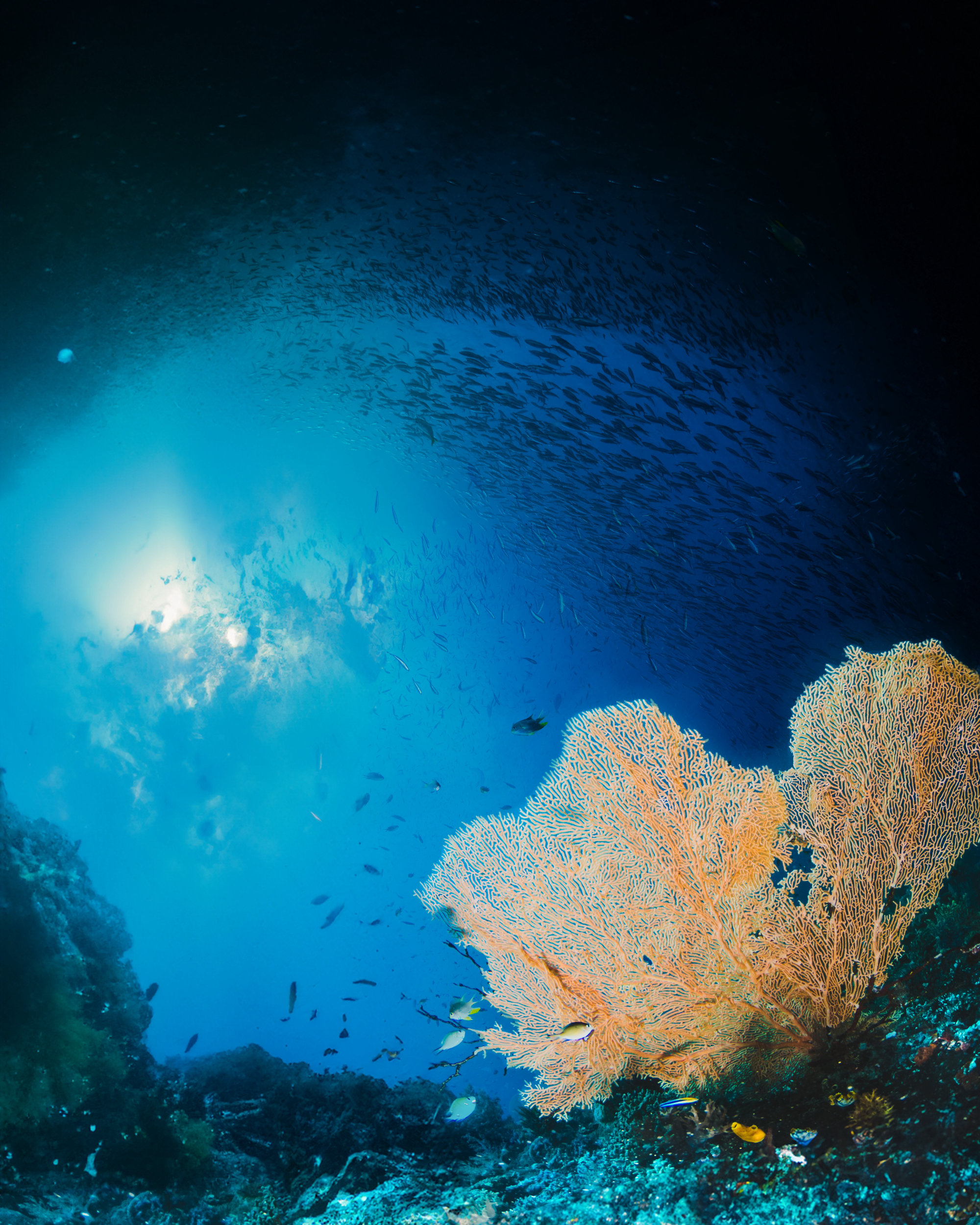They've been around much longer than us, but if we don't do something, they'll be gone before us. These are coral reefs, which have inhabited the seas and oceans for more than 50 million years. At CORAIL°, we fight to protect the marine ecosystem, especially since 20% of coral reefs are found in French territorial waters. This natural wonder of infinite colors represents only 1% of the seabed, but it is home to ¼ of marine species. There are different types of reefs, and some coral species only grow a centimeter or two per year. You have to be very patient to see a real coral reef develop, the process can take up to a few thousand years.
Sometimes referred to as “maritime oases”, coral reefs have various roles. The most important, undoubtedly, is the shelter they offer to a large number of marine organisms, making them an essential place for the development of underwater fauna. The small underwater species that live there feed on the organic debris released by the corals. Coral reefs also play a very important role for us who live on the surface: they protect coastlines from strong ocean currents and powerful waves, they act as a natural barrier and thus protect the shores.
With global warming, natural damage is only increasing, both in number and intensity. Can corals protect us and thus avoid all these floods and other damage? Coral reefs act as an artificial dike, and defend the coastline from waves, storms, floods or even cyclones. By losing them, we lose major coastal protection.
Coral reefs face many challenges, foremost among which is human impact. We threaten them with pollution, global warming, overfishing... Invasive species and sedimentation are also threats to corals. Over the last 20 years, almost half of the coral reefs have disappeared, and things are not getting better. With global warming above 2°C, corals are expected to disappear before the start of the next century. It is therefore necessary more than ever to protect this marine species, which has protected us for millennia, while we destroy it in return.
Together, let's protect these coral reefs, and as always, clean up the sea!
